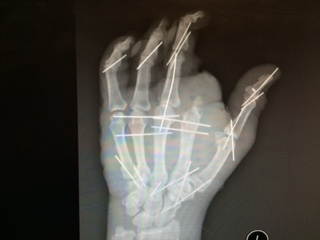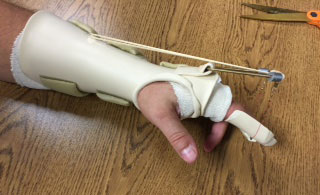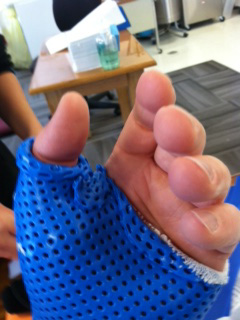Research & Education
Where to Start?
RESEARCH SKILL IS CUMULATIVE…START WITH WHERE YOU ARE.
- New idea!
- Explore the idea (literature review, fact finding, and collaboration).
- Formulate hypothesis (clarify and simplify question).
- Gather materials.
- Try the procedure with only a few subjects.
- Develop a solid protocol for measurement (include reliable measures and eliminate or control variables).
- Determine the number of subjects/items/measurements needed for the study.
- Determine costs and materials.
- Determine how data will be analyzed.
- Include everything in a written protocol and get review of the protocol.
- Request review by experts.
- Revise and submit for publication – be prepared to revise and resubmit for publication based on publication reviewer comments.
- Enjoy the final publication, and realize you are moving the profession forward.
Projects should have defined anticipated time frames
Research cannot always be precisely scheduled, as one cannot say they will have a great idea at exactly 10:00 a.m. tomorrow. Your work environment needs to be set up in a way that will allow research to happen.
First allowing oneself to have the mindset that research should be in the clinic, and then allowing some research time for thinking, literature review, etc., enables and empowers study and review of practice.
When you do have a good idea, sleep on it, discuss it, put it on the shelf, then take it back off at a time you can think about it more. If you do several ideas this way, you will find one day when a patient is cancelled, it is just the right amount of time to pick up that project and think about it a little more, or try it out.
Focusing on one project is good, but starting several projects and ideas over time is sometimes even better, as you may find yourself finishing them off as specific opportunity and time is available.
Rotate time with other staff in order to build in research time, or set specific hours where possible. Even one hour a week is cumulative, and the results help teach others that time spent is valuable and needed time.
Obtain and fill out standard project grant forms even if you are not requesting funding. This allows you to develop the project in an organized format that has been well taught out and developed over time, and is recognized by others doing research.
The protocol serves as a template for your study, including how your research can be done within other responsibilities, detailing time required, space, and materials, etc.
Writing the protocol is an education in itself, and any wise protocol writer seeks and appreciates comment from other professionals on approach and design.
Studies reviewed by hospital review committees help convince other hospital and educational staff of the merits and seriousness of your program in providing quality treatment.
You having a proposal approved helps other staff recognize and support the time needed for measurements, etc., the protocol is in essence an agreement in writing, with normal and necessary permissions for the study.
The increased visibility of the clinic through publications and peer reviewed presentations helps convince administrators of the value in supporting your continued clinical research and encourages grant authorities to award grants for your studies and programs.
Having established approved protocols also increases the likelihood of your having other projects approved, and recognition of the validity of therapy research by therapists in general, encouraging grant authorities to award grants to other therapists and therapy projects.
If you cannot do research yourself, at least help support others through enabling them some time for research, and participate in interest and study groups.
Your profession will be better off with your help, and we need all of the help we can muster if research is to realistically become part of the clinic.
GRANTS
Supporting novice or experienced researchers who are able to expand the scientific evidence, visibility, and quality of upper extremity and hand rehabilitation.
DONATIONS
Support our mission of promoting high impact clinical and fundamental upper extremity research. Your generosity makes a difference! Support your profession through a tax‑deductible gift today.



